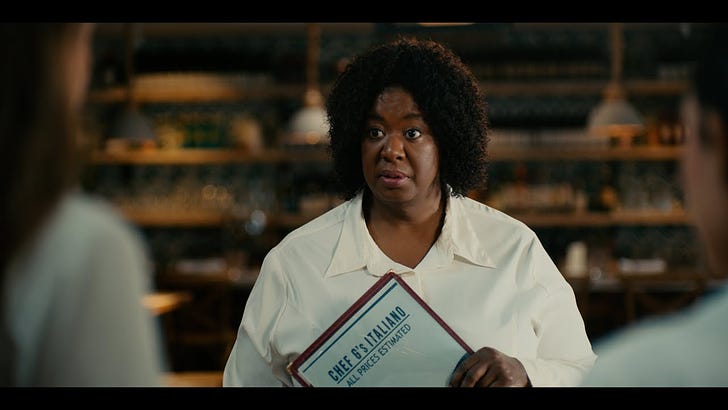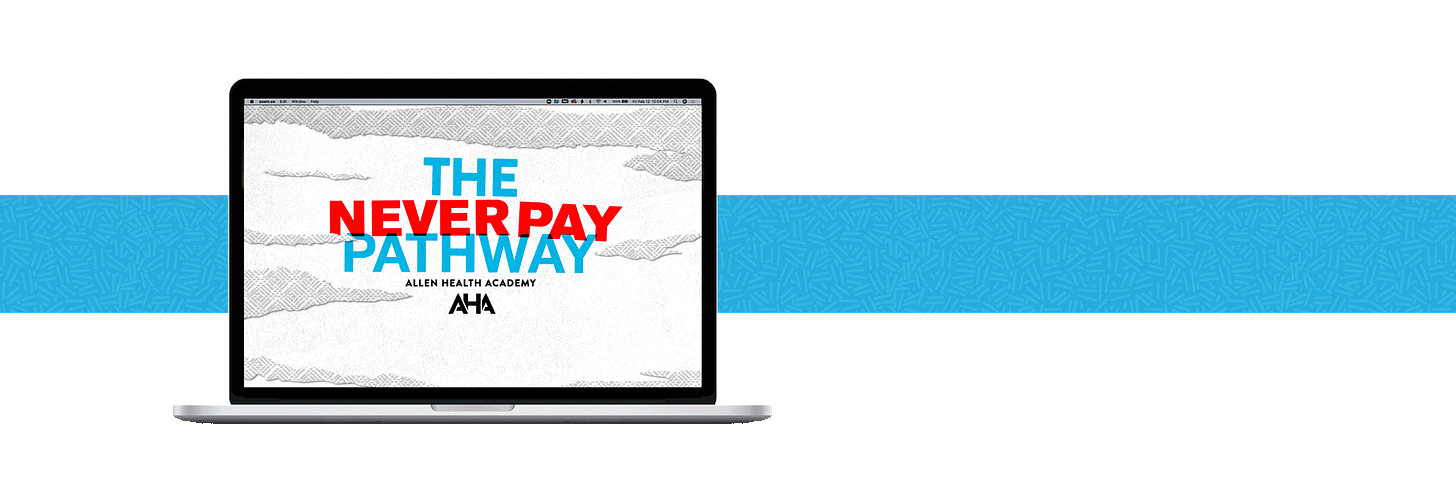Satirizing American Health Care
“Satire is moral outrage translated into comic art.” The high cost of American health care deserves to be lampooned. I've got some ideas!
I love the way Power to the Patients satirizes hospital prices in its latest video: “A Dystopian World Without Prices: Just Estimates!”
The video (click here or the image above to watch it) imagines a world where other businesses adopt the health care world’s method of refusing to give prices up front.
“A troubling new trend is coming to a business near you,” a news announcer intones at the opening of the video. “Prices are hidden and consumers are left guessing.”
The video then cuts to a restaurant, coffee shop, taxicab and other businesses that have switched from showing prices up front to providing estimates. “When they ask for a price, we give them an estimate,” a restaurant manager tells her staff in an ominous tone. “Then we bill them whatever we want.”
The idea that a business would not provide prices up front is absurd. But that’s exactly what’s happening now in health care. That’s the satire at the core of the brilliant Power to the Patients video. Power to the Patients made the video to support the Hospital Price Transparency Final Rule, which requires hospitals to post their prices on their websites.
Satire is a humorous, entertaining and effective way to speak truth to power. It empowers people and its moral force can bring about change. “Satire is moral outrage translated into comic art,” the American novelist Philip Roth said.
That’s why I’m cheering on the Power to the Patients creative team. The health care power players deserve to be satirized. Americans pay about twice as much per person for health care than the citizens of other developed countries, yet an estimated 100 million are burdened by medical debt. We keep paying more. We keep getting less. The fat cats keep getting rich.
Just in case the Power to the Patients team is planning a series of these satire videos — and really just for fun — I have some ideas. I’ve been doing investigative reporting about health care for 17 years and wrote my book, Never Pay the First Bill, to show people how to fight the system. Let’s have a pitch session.
I’m also calling on all creatives. Let’s spitball here. Some of my ideas for satirical videos are below. Please share yours in the comments. I’ll send a signed copy of my book to the reader with the best idea.
Satire idea #1: What if other businesses adopted health care’s price variation?
The absurd reality: Hospitals and other health care providers charge working Americans anywhere from two-times to 10-times more than patients on Medicare for the exact same services.
The video concept: A middle-aged woman goes to a burger joint with her elderly mother. The elderly mom gets charged $3 for a burger and the bill for her daughter comes to $25. Then they go car shopping and the salesman says it’ll be 10 grand for the older woman and 40 grand for the daughter.
Of course, the mother and daughter would be stunned by the demands to make the younger woman overpay. But that’s how it works in health care, which builds price discrimination against working Americans into its business model.
Satire idea #2: What if other businesses price gouged cancer patients the way hospitals do?
The absurd reality: Researchers have found that hospitals markup the price of cancer drugs for patients on private insurance plans anywhere from 120% to 630%. No wonder cancer is a leading cause of bankruptcy in the United States.
The video concept: A cancer patient shows up at a coffee shop and the barista changes the price on a $4 latte to one for $20, with a knowing nod to her manager. Then the cancer patient goes to get her car washed and finds the price being changed from $10 to $60 when she pulls in. The video could close with the business managers counting stacks of bills in a back room while the cancer patient’s house gets foreclosed.
That sounds wrong, doesn’t it? Yes, and it’s how business gets done in health care.
Satire idea #3: What if you had to pay a 5% fee for the direct deposit of your paycheck?
The absurd reality: Shoutout to my friend Cezary Podkul, my former colleague at ProPublica, for this one. Cezary recently published a story showing how insurers routinely charge fees up to 5% for doctors who get paid electronically. It’s an excellent story that highlights how middlemen are driving up the cost of health care for all of us.
The video concept: Various workers — some blue-collar lunch bucket types, white collar professionals, teachers, firefighters, etc. — examine their pay stubs and notice a 5% “electronic payment fee” subtracted from their wages.
That would not be acceptable. But that type of funny business is just another way our health care middlemen boost their revenue.
Satire idea #4: What if other businesses refused to provide itemized bills and receipts?
The absurd reality: Hospitals are notorious for sending bills that sum up total costs without itemizing the individual charges.
The video concept: A waiter delivers a restaurant bill that shows a total, without detailing what the patrons at the table ordered and the price of each item. The customers are confused! Then we cut to a harried mom is checking out at the market with a cartful of groceries. She scans her receipt but instead of listing the prices of her bread, milk, cheese and other items - it’s just the total.
That’s not how it works in the real world. But that’s how it works in health care.
Sadly, I could go on and on. There’s so much to satirize in American health care that we need a movement of artists and filmmakers to get on board.
If anyone at Power to the Patients is reading - have your people call my people!
Let’s hear your ideas: Got an idea for a compelling video that satirizes the American health care system? Share it in the comments or email it to me at neverpay@marshallallen.com. I’ll send a signed copy of my book to the reader who submits the best idea and may feature your pitch in a coming newsletter.
Let’s partner to educate and equip employees
Most employers are giving their workers the equivalent of a blank check when they enroll them in health benefits - without helping them navigate the health care system. That leads to overspending for the health plan and the worker.
How about we try something different?
I’m looking for bold employers to equip their employees with my Never Pay Pathway health literacy videos. They’re based on my book, Never Pay the First Bill, and the knowledge will transform the way employees engage the health care system.
The videos are an ENGAGING resource that will save money for your employees, their families - and your health plan. Let’s stop overpaying for our health care, shall we? Email me at neverpay@marshallallen.com for more information.
Don’t forget NABIP members: The Never Pay Pathway videos, with assessments, are available to you for NABIP continuing education credit. Click this link to sign up.
And attention SHRM members: The Never Pay Pathway videos, with assessments, are also available to you for SHRM continuing education credit. Sign up at this link.
“Never Pay the First Bill” is “The Art of War for Health Care”
I love that the team at CrowdHealth called my book “The Art of War for Health Care” when they promoted my appearance on their podcast.
Yes! That’s exactly what I aimed for when I wrote “Never Pay the First Bill.”
Want to save hundreds or thousands of dollars on health care? Get the book!
And don’t forget to share your Victory Story with me. I love to share the stories in this newsletter, so your big win can inform and inspire others!







I experienced the " estimate only" issue this week for the first time. Frustrating! I called a new Dr's office to get the price for a test that was ordered so I could provide to my insurance company. They need the cost before they can tell me what my what my allowable will be. I think I'll start giving my Drs an '' estimate" of what I'll pay them. I work in healthcare, as a coder, so don't know if my employer is doing this but it's absurd and infuriating.
IDEA: What if manufacturer coupons weren't universally applied to all stores?
REALITY: Pharmacies don't universally accept the same coupons. For instance, GoodRx has different coupons for different pharmacies, some with VERY different prices. And for those to be applied, the prescription has to be re-billed and re-signed off by the pharmacist, typically taking around 20-30 minutes in my experience. More if you have to transfer scripts to a different pharmacy to get a better deal.
VIDEO CONCEPT: An customer takes her cart of groceries to the checkout line. After the cashier rings up all the groceries, the customer presents a few coupons. The cashier explains that for the coupons that can be applied at that store, she will have to get the new price and re-check her out. She'll have to wait about 20 minutes for that process to complete, and then she can get her groceries. For the coupons that aren't taken at that store, she'll have to go to different stores to get those coupons applied.